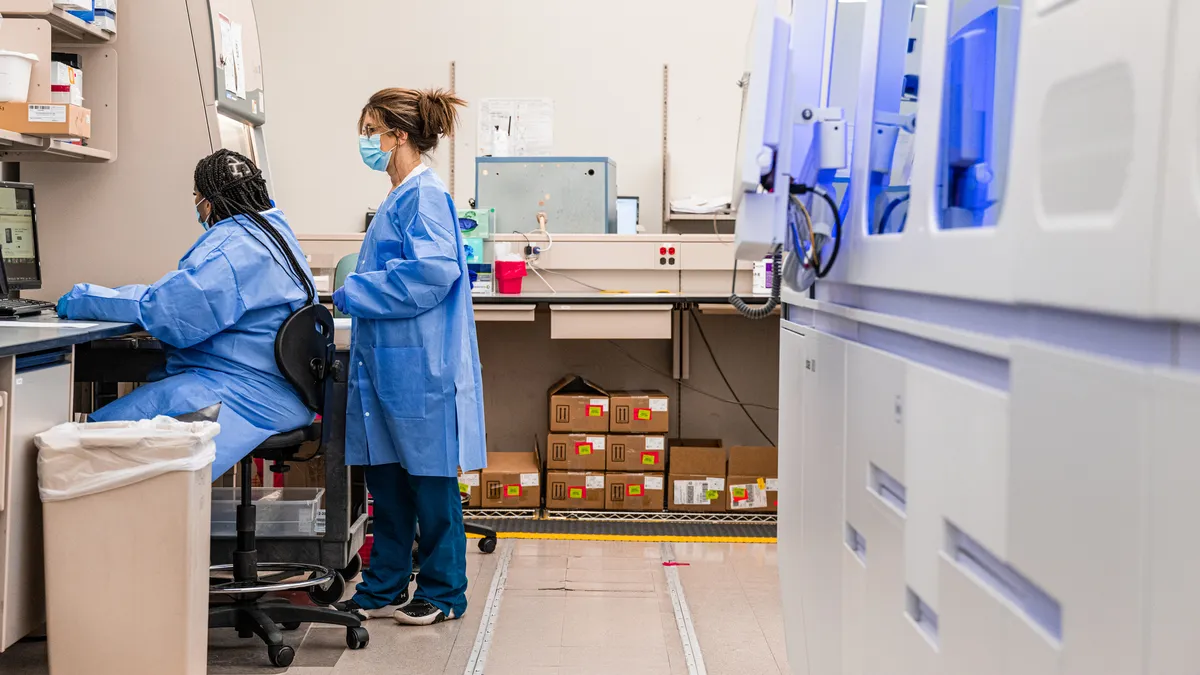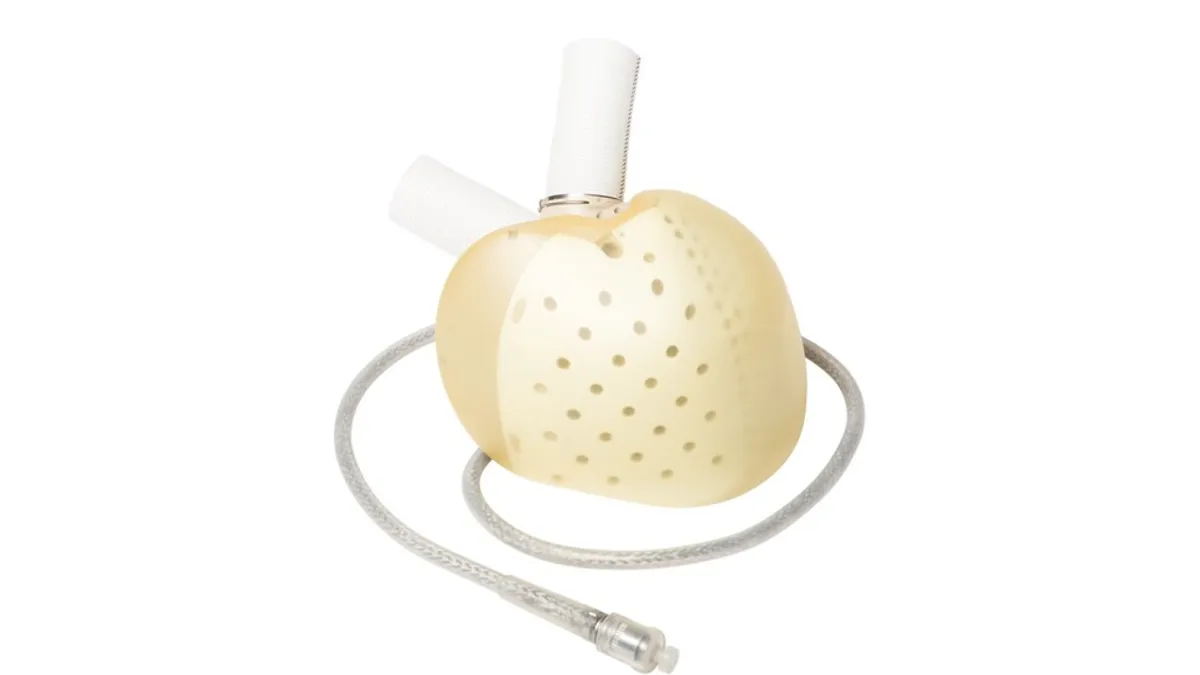The Food and Drug Administration’s attempt to increase regulatory scrutiny over laboratory developed tests appears to be dead, much to the relief of clinical labs.
The FDA is unlikely to appeal the March 31 federal court order that set aside a final rule asserting the agency’s jurisdiction over LDTs, attorneys who handle regulatory matters said in interviews.
The possibility that Congress could still overhaul the regulatory framework for diagnostic testing lives on, though any new legislative effort would likely take time, as the issue has not been a top priority for lawmakers.
“The LDT concept is sort of like a vampire, and it's risen many times in the past,” said Jeff Gibbs, a director at the law firm Hyman, Phelps & McNamara, which represented the Association for Molecular Pathology in the case against the FDA. “This isn't quite the stake in the heart.”
Intended to strengthen oversight of labs that develop, manufacture and use their own diagnostic tests, the FDA’s final rule would have regulated LDTs as medical devices. Over four years, it would have phased in requirements such as adverse event reporting, premarket review, registration, labeling and other provisions.
Concerned that the high costs of complying with the rule would force labs to discontinue some test services, to the detriment of patients, the American Clinical Laboratory Association and AMP sued to stop the FDA from enforcing the regulation — and prevailed. Judge Sean Jordan of the U.S. District Court for the Eastern District of Texas vacated the rule, which would have taken effect next month.
Most labs, whether in larger hospitals that perform complex tests or community settings focused on routine care, use LDTs to meet specific clinical needs, where commercial in vitro diagnostic tests are unavailable. Sheldon Campbell, a professor at the Yale School of Medicine, said LDTs are “any test that’s not done exactly the way the FDA approved it.”
With implementation of the FDA rule halted, “those labs can basically keep going with the staff they've got,” said Campbell, who is director of laboratories for the VA Connecticut Healthcare System. “This is a real benefit for patients.”
LDTs are regulated under the Centers for Medicare and Medicaid Services’ Clinical Laboratory Improvement Amendments program, as established by Congress. The FDA, which regulates tests that it authorizes for use as medical devices, for decades followed an enforcement discretion policy toward LDTs.
The FDA’s view
In moving to expand its requirements for LDTs, the FDA argued that more active oversight was needed due to greater risks associated with modern versions of the tests.
“The FDA is aware of numerous examples of potentially inaccurate, unsafe, ineffective or poor quality IVDs offered as LDTs that caused or may have caused patient harm, including tests used to select cancer treatment, aid in the diagnosis of COVID-19, aid in the management of patients with rare diseases and identify a patient’s risk of cancer,” the agency said last year when it announced the final rule.
Then-FDA Commissioner Robert Califf said the agency could not “stand by” while Americans relied on the widely used tests “without assurance that they work.”
Campbell and others say LDTs already receive significant scrutiny under CLIA, a comprehensive framework through which issues with LDTs can be addressed. “Doing it incrementally and evolutionarily within the CLIA framework is a more sensible approach than creating a second entire regulatory apparatus for laboratories,” Campbell said.
The U.S. district court, which remanded the matter to newly confirmed Health and Human Services Secretary Robert F. Kennedy Jr., concluded the rule exceeded the FDA’s authority under the Federal Food, Drug, and Cosmetic Act of 1938. The opinion cited the Supreme Court’s decision last year in Loper Bright Enterprises v. Raimondo in finding the FDA lacked the statutory authority to regulate LDTs as devices.
Despite the FDA’s determination to increase oversight of the tests, attorneys said they don’t think the agency will appeal the district court’s decision, though it could.
“Certainly the government has the right to appeal this and can do that,” said Chad Landmon, attorney at the Polsinelli law firm. “But a lot of people have thought, and myself included, that the more likely outcome is that they won't appeal, and they will just let this die for now, until either activity from Congress or the next administration four years from now.”
The FDA did not respond to an inquiry from MedTech Dive on whether it would appeal the case.
Any comment or other response to the court’s opinion, such as a formal revoking of the final rule, could be slowed by recent cuts to FDA staff, including in the communications department, Landmon said, adding, “I do expect it's such an important issue that we'd likely get some sort of statement or clarification about it.”
“The LDT concept is sort of like a vampire, and it's risen many times in the past. This isn't quite the stake in the heart.”

Jeff Gibbs
Hyman, Phelps & McNamara director
Under the new Republican administration, the FDA might not challenge the court decision, given the rule’s unpopularity with industry, said Ben Wolf, a partner at the law firm Alston & Bird. “I would say, for now, industry should feel pretty good about where things stand, as far as not having to come into compliance with the FDA requirements,” he said.
As the FDA considers its next steps, one area to watch is whether the regulator begins actions toward products previously not targeted for active enforcement. “They may choose to put their enforcement dollars elsewhere, but it certainly is a possibility,” Wolf said.
As for the work that labs put into preparing for the FDA’s rule before it was halted, “it’s not that it was a completely useless effort,” said Yale’s Campbell, because labs continuously evaluate their test lists.
The case for reform
Zach Rothstein, executive director of AdvaMedDx, the diagnostics division of medical device trade group AdvaMed, said having dual regulatory roles — one at CMS and one at the FDA — for what amounts to the same product is not a good use of the government's resources.
“Given the questions raised by the court’s decision, it is in the interest of everyone for Congress to act to finally decide how, as a country, we should treat LDTs, because right now you can have two different tests for the same patient regulated by two different regulatory programs,” Rothstein said. “That’s not an efficient way for us to review these products, and it’s also not in the public’s best interest.”
Legislation called the Verifying Accurate, Leading-edge IVCT Development Act that sought to reform the regulatory framework for IVDs failed to gain traction in Congress in recent years despite multiple attempts to advance the bill.
“Given the questions raised by the court’s decision, it is in the interest of everyone for Congress to act to finally decide how, as a country, we should treat LDTs."

Zach Rothstein
AdvaMedDx executive director
Several attorneys said that while diagnostics regulatory reform is needed, they don't anticipate the current Congress, with both a Republican-controlled House and Senate, will pass legislation on LDTs anytime soon. For one thing, the VALID Act’s Republican sponsor, Larry Bucshon of Indiana, retired from the House in January.
State regulators could step in to help fill the void, said Matt Wetzel, a partner at the Goodwin law firm. He noted New York and Washington already have the infrastructure for regulating many aspects of lab operations. “The regulatory compliance I don't think goes away,” Wetzel said. “I think we're going to continue to see that as a significant cost for companies.”
At some point, however, a renewed legislative effort to modernize regulation of diagnostic testing and clarify FDA’s role in LDT oversight is likely, attorneys said.
“The subject of whether LDTs should be regulated is one that I don't think vanishes. It’s now a question of congressional action, rather than FDA,” said Hyman, Phelps’ Gibbs. “Barring a successful appeal, the battle shifts completely to Congress.”



















